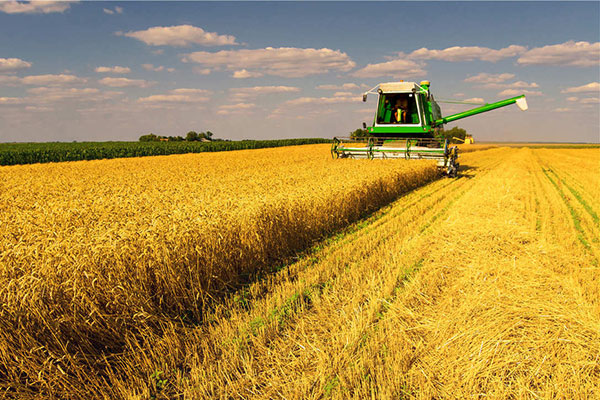
At the executive meeting of the State Council on July 22, Premier Li Keqiang mentioned his confusion when he first heard the expression “agriculture industry” more than a decade ago in Canada.
It was during an inspection that he noticed that “agriculture industry” was used all the time to refer to “agriculture”.
“I was quite puzzled back then. How could agriculture be an industry at the same time?” Premier Li said.
“But I got it after being shown around. It turned out that they were developing agriculture by using industrial methods all across the board, from seed selection to plantation, from harvest to storage, and even processing and marketing. The products were finally sold to the rest of the world,” he said.
The State Council decided to boost the transformation of agricultural development at the meeting on July 22.
”Take a look at the agricultural modernization efforts in developed countries and we would find out that most of them have adopted industrial methods to develop agriculture,” said Premier Li.
If agriculture does not go towards the direction of industrialization, the agricultural modernization will lose its support. In other words, the farmers could only have their income and benefits increased by fundamentally transforming the development modes of agriculture, he said.
“On the premise of grain safety, efforts should be done to realize the transformation of agricultural development, in order to ensure that farmers’ income grow in the pace as the country’s GDP,” Li said.
“An important thing is that we should promote operations that run within appropriate scale and have multiple approaches, while respecting the willingness of farmers.”
Expand effective irrigated area
In February, Premier Li Keqiang mentioned that China’s agricultural development has encountered the “ceiling” in raising prices and increasing subsidies, and it is also inhibited by ecological environment and resource condition.
Accelerating agricultural modernization and boosting the transformation of agricultural development is the only option for the sustainable development of agriculture, he wrote in an article in Qiushi - “Seeking Truth”- a magazine of the Communist Party of China Central Committee.
“The agricultural development should be transformed only when grain safety is guaranteed, as it is a matter of primary importance for a country,” Premier Li told participants at the meeting.
A key point to increase the grain output is transforming farmland of medium and low production capacity, he said, noting the huge potential in this regard as only 50 percent of China’s farmland is effective irrigated area.
China feeds 21 percent of the world’s population on seven percent of the world’s arable land and China’s water resources per capital only accounts for one fourth of the world average level.
To ensure this task, efforts should be done to expand effective irrigated area among farmland of medium and low production capacity to boost food security, the Premier said.
Market-oriented restructuring
When I was working in Henan province, I noticed that it was hard for farmers to make more money simply by selling grain. So we took advantage of the local intensive labor and vigorously developed wheat processing and produced frozen dumplings, which led to the creation of a group of grain processing enterprises, Premier Li said.
“Agricultural restructuring should be market-oriented and meet the demands of consumers. Only in this way, can farmers’ income and living conditions be improved,” he said.
At the meeting, Premier Li also encouraged large-scale planting, breeding, product processing and agricultural services, to advance the integrated development of production, processing, logistics and marketing, and extend the value chain.
He asked the authorities to solve problems and to ensure that agricultural subsidies are provided to the farmers, thus motivating them to grow grains.
Promote appropriate scale operations
The Premier noted the importance to promote operations that run within appropriate scale and have multiple approaches at the meeting.
Besides family farm, other approaches such as letting farmers become shareholders of their land or land trusteeship should also be considered. In this way, farmers could have their land back whenever they want, Li said.
“However, any approach should be based on the farmers’ willingness.”
According to Premier Li, experience in several areas have demonstrated that once appropriate scale operations are carried out, a clear advantage is the increase of arable land by wiping out the field ridges.
At the same time, scale operations will help to boost the mechanization of agriculture.
“If the field ridges still exist, it is impossible for large machines to go to the field and plough deeply, and a large amount of chemical fertilizers have to be used instead,” Li said.
However, Premier Li said now the situation is that the small patches of farmlands have caused a lack of demand for heavy machinery and thus affecting the production capacity of agricultural machinery companies; on the other hand, farms that are in need of heavy machinery have to import from other countries with subsidies offered by the government.
More importantly, the Premier said, operations that run within appropriate scale and have multiple approaches will greatly increase farmers’ income.
“They will be able to make money by transferring or leasing the land, and they can also earn money by working in farmers cooperatives,” he said.
